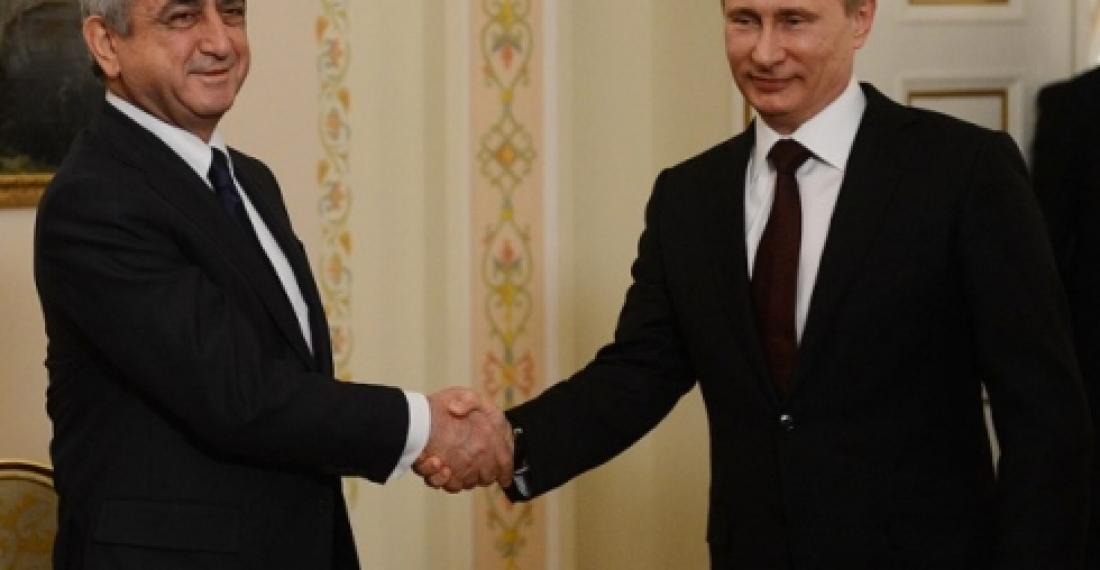Серж Саргсян еще не был приведен к присяге на второй срок в качестве президента Армении, но его визит в Москву на этой неделе, очевидно, не мог ждать. Если Армения сильно зависит от России в ряде сфер, то политическая судьба Саргсяна в еще большей зависимости.
В этой связи поддержка президента Владимира Путина на встрече в Кремле, 12 марта, была для Саргсяна не только важна, но имела решающее значение. Как сообщается на сайте президента Армении "В начале встречи Президент РФ Владимир Путин поблагодарил Президента РА за визит и учитывая, что это первая заграничная поездка Президента Сержа Саргсяна после президентских выборов в Армении, еще раз поздравил Сержа Саргсяна с одержанной на этих выборах убедительной победой. По словам Президента РФ, около 60 процентов – это очень хороший результат, который говорит о доверии народа и дает возможность реализовать все планы, которые ставил перед собой Президент РА, начиная избирательную кампанию."
Российские СМИ в начале этого месяца предположили, что в Кремле существует беспокойство из-за удивительно высоких результатов кандидата от оппозиции Раффи Ованнесяна на прошедших 18 февраля президентских выборах, в том числе в районах вокруг Гюмри, где Россия имеет военную базу, на которой работают тысячи местных армян.
Политический редактор Commonspace.eu в комментарии сообщает, "российско-армянские отношения во многом являются особенными и руководства обеих стран стремятся сохранить их таковыми. Многое в этих отношениях основано на взаимной выгоде. Однако, корни этих отношении уходят в чувство Армении неуверенности в себе. Окруженная реальными или мнимыми врагами Армения видит в России не только друга, но и гаранта ее безопасности. Отношения, построенные на страхе, не идеальны, но могут быть долгосрочными. Тем не менее эти отношения могут также давать Армении ложное чувство безопасности. Это неравные отношения с Арменией чрезмерно зависимой от России в военной, политической и экономической сферах.
Визит президента Саргсяна в Москву на этой неделе сильно походил на попытку получить благословение большого покровителя перед более сложной ситуацией дома.
Саргсян проявил некоторое желание уменьшить зависимость Армении от России. Ее заигрывание с Турцией в 2008 году привел к обратным результатам в основном по вине Турции. Аналогичный флирт сейчас происходит с Европейским Союзом. ЕС мудро решил поиграть в мяч. Время покажет, увидет ли Саргсян конец этого матча."
Источник: commonspace.eu
Фото: Президент Серж Саргсян во время встречи с президентом России, Владимиром Путиным в Москве, 12 марта 2013 года. (фото любезно предоставлено пресс-службой президента Армении).







